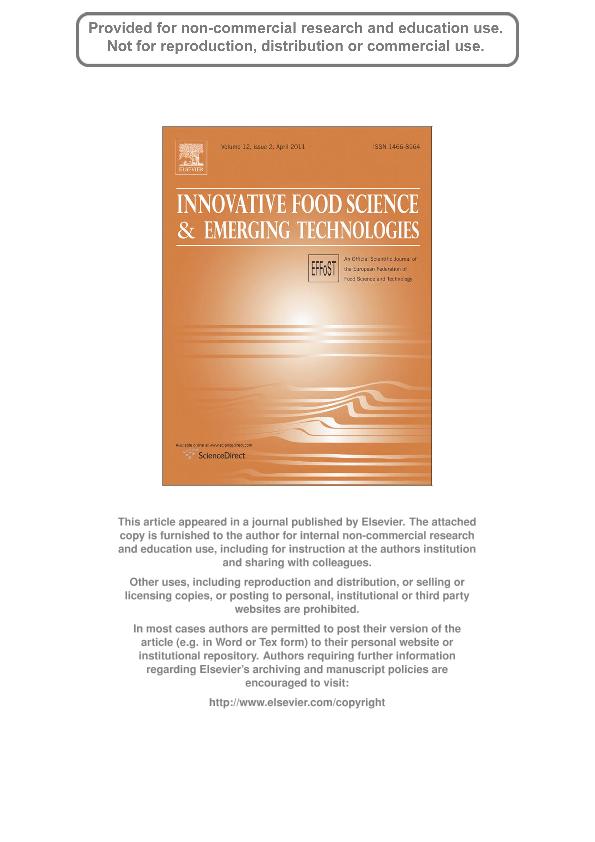Artículo
Supercritical CO2 fractionation of rosemary ethanolic oleoresins as a method to improve carnosic acid recovery
Fecha de publicación:
04/2011
Editorial:
Elsevier
Revista:
Innovative Food Science & Emerging Technologies
ISSN:
1466-8564
Idioma:
Inglés
Tipo de recurso:
Artículo publicado
Clasificación temática:
Resumen
Supercritical fluid antisolvent fractionation was used to obtain antioxidant compounds, mainly carnosic acid (CA), from high viscous oleoresins derived from dried rosemary leaves (Rosmarinus officinalis) extracted with ethanol. Due to the high viscosity of the starting material, which may hinder the mass transfer between the phases, a special nozzle was designed to blend the SCCO2 stream with the high viscous oleoresin. Experiments were conducted at 50 °C and six different pressures in the first separation vessel, ranging from 150 to 400 bar; the best separation was achieved at 300 bar. As a result of the oleoresin two-stage fractionation, the starting material was separated in two fractions. The first one was an insoluble dark green powder, with low concentration of CA (< 5 g/100 g extract). The other fraction was an orange colored resinous extract, very soluble in SCCO 2, with a high concentration of CA (33 g/100 g extract at 300 bar). The antioxidant effect of this extract was higher to that of BHT when added to soybean oil. Industrial relevance: The present study adds a possibility for the purification of carnosic acid from rosemary by using SCCO2 antisolvent fractionation. Since the starting material employed (oleoresin) is a fluid phase, the process might be carried out in a continuous or semi-continuous way instead of discontinuous as it should be done if the starting material were a solid (leaves). This feature makes the procedure very promising toward its application at the industrial scale.
Archivos asociados
Licencia
Identificadores
Colecciones
Articulos(CCT - BAHIA BLANCA)
Articulos de CTRO.CIENTIFICO TECNOL.CONICET - BAHIA BLANCA
Articulos de CTRO.CIENTIFICO TECNOL.CONICET - BAHIA BLANCA
Articulos(PLAPIQUI)
Articulos de PLANTA PILOTO DE INGENIERIA QUIMICA (I)
Articulos de PLANTA PILOTO DE INGENIERIA QUIMICA (I)
Citación
Visentin, Alexis Nahuel; Cismondi Duarte, Martín; Maestri, Damian; Supercritical CO2 fractionation of rosemary ethanolic oleoresins as a method to improve carnosic acid recovery; Elsevier; Innovative Food Science & Emerging Technologies; 12; 2; 4-2011; 142-145
Compartir
Altmétricas




